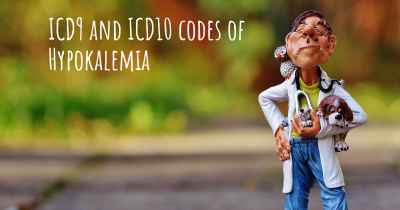Which are the causes of Hypokalemia?
See some of the causes of Hypokalemia according to people who have experience in Hypokalemia

Hypokalemia is a medical condition characterized by low levels of potassium in the blood. Potassium is an essential mineral that plays a crucial role in various bodily functions, including nerve and muscle cell function, maintaining proper heart rhythm, and balancing fluids in the body. When potassium levels drop below the normal range (3.5-5.0 mmol/L), it can lead to a range of symptoms and health complications.
There are several potential causes of hypokalemia:
- Inadequate dietary intake: A diet lacking in potassium-rich foods can contribute to hypokalemia. Potassium is found in abundance in fruits, vegetables, legumes, and certain meats. Insufficient consumption of these foods can result in low potassium levels.
- Excessive loss of potassium: Certain medical conditions or medications can cause excessive loss of potassium through urine or the digestive tract. Chronic kidney disease, diuretic medications, excessive sweating, and diarrhea are common culprits that can lead to potassium depletion.
- Shift of potassium into cells: In some cases, potassium may move from the bloodstream into the cells, resulting in low blood potassium levels. This can occur due to insulin therapy, alkalosis (increased blood pH), or the use of certain medications like beta-2 agonists.
- Genetic disorders: Rare genetic disorders, such as Bartter syndrome or Gitelman syndrome, can cause abnormalities in the kidneys' ability to reabsorb potassium, leading to chronic hypokalemia.
- Alcohol abuse: Excessive alcohol consumption can impair the kidneys' ability to retain potassium, leading to its increased excretion and subsequent hypokalemia.
- Other medical conditions: Certain medical conditions, such as Cushing's syndrome, primary aldosteronism, and magnesium deficiency, can disrupt the body's potassium balance and contribute to hypokalemia.
The symptoms of hypokalemia can vary depending on the severity and underlying cause, but common signs include: muscle weakness, fatigue, constipation, palpitations, muscle cramps, abnormal heart rhythms, and increased urination.
If you suspect you may have hypokalemia, it is important to consult a healthcare professional for proper diagnosis and treatment. Treatment typically involves addressing the underlying cause and may include potassium supplements or dietary changes to increase potassium intake.








